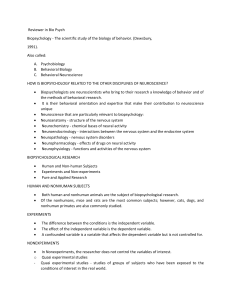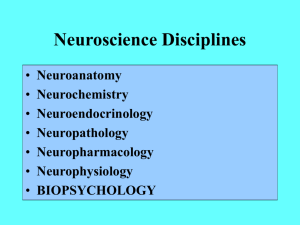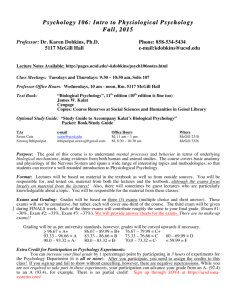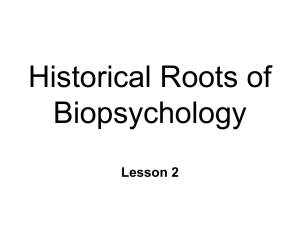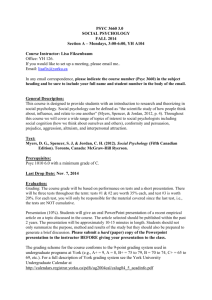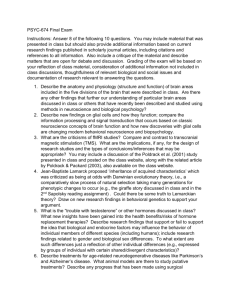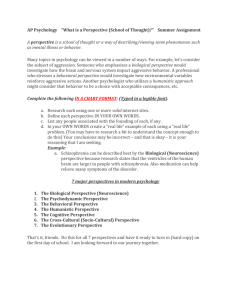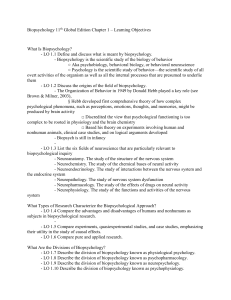Course syllabus
advertisement
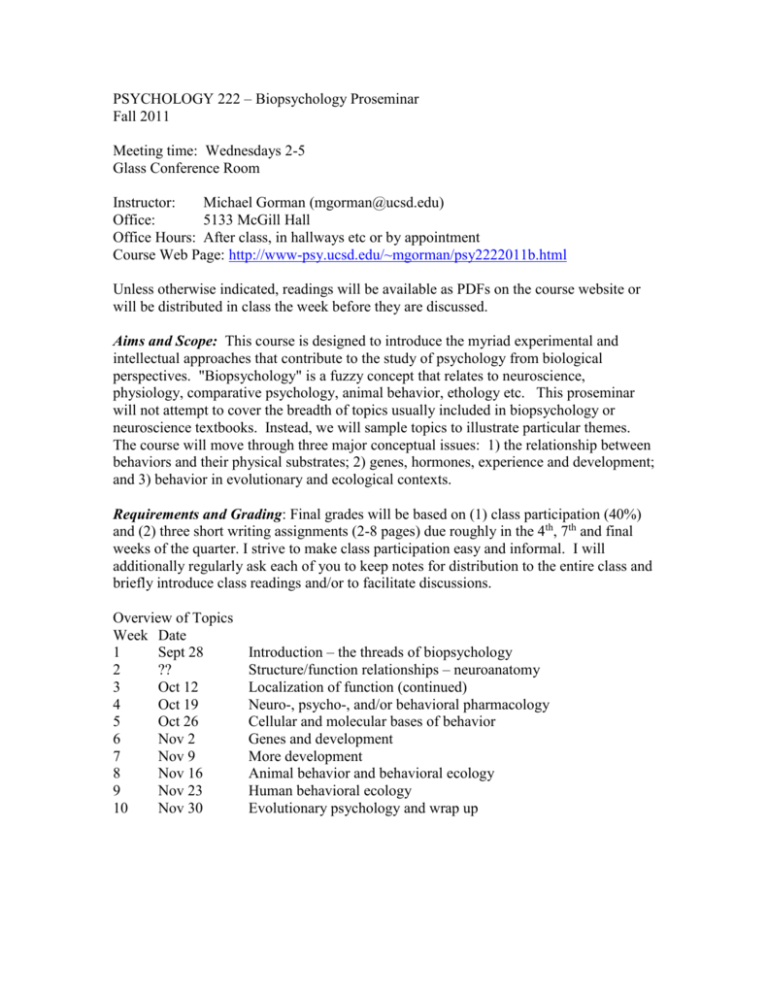
PSYCHOLOGY 222 – Biopsychology Proseminar Fall 2011 Meeting time: Wednesdays 2-5 Glass Conference Room Instructor: Michael Gorman (mgorman@ucsd.edu) Office: 5133 McGill Hall Office Hours: After class, in hallways etc or by appointment Course Web Page: http://www-psy.ucsd.edu/~mgorman/psy2222011b.html Unless otherwise indicated, readings will be available as PDFs on the course website or will be distributed in class the week before they are discussed. Aims and Scope: This course is designed to introduce the myriad experimental and intellectual approaches that contribute to the study of psychology from biological perspectives. "Biopsychology" is a fuzzy concept that relates to neuroscience, physiology, comparative psychology, animal behavior, ethology etc. This proseminar will not attempt to cover the breadth of topics usually included in biopsychology or neuroscience textbooks. Instead, we will sample topics to illustrate particular themes. The course will move through three major conceptual issues: 1) the relationship between behaviors and their physical substrates; 2) genes, hormones, experience and development; and 3) behavior in evolutionary and ecological contexts. Requirements and Grading: Final grades will be based on (1) class participation (40%) and (2) three short writing assignments (2-8 pages) due roughly in the 4th, 7th and final weeks of the quarter. I strive to make class participation easy and informal. I will additionally regularly ask each of you to keep notes for distribution to the entire class and briefly introduce class readings and/or to facilitate discussions. Overview of Topics Week Date 1 Sept 28 2 ?? 3 Oct 12 4 Oct 19 5 Oct 26 6 Nov 2 7 Nov 9 8 Nov 16 9 Nov 23 10 Nov 30 Introduction – the threads of biopsychology Structure/function relationships – neuroanatomy Localization of function (continued) Neuro-, psycho-, and/or behavioral pharmacology Cellular and molecular bases of behavior Genes and development More development Animal behavior and behavioral ecology Human behavioral ecology Evolutionary psychology and wrap up
